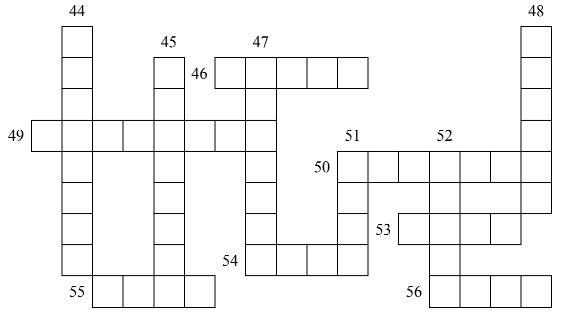44. If you buy an extra battery at the same time as the digital camera, we can offer you a .............................. of 10%. (8) 45. Our supermarket stocks over a thousand household ............................. at low, low prices! (8) 46. Nine out of ten shoppers who tried our washing powder preferred it to any other leading ............................. (5) 47. When I checked the ............................. on my way out of the supermarket, I noticed that I had paid twice for the fruit. (7) 48. If you take something back to the shop, you might get a ............................. or be offered another item instead. (6) 49. If the ............................. situation continues to worsen, the government may have to take steps. (8) 50. You only paid €30 for such a gorgeous hat? That’s a real .............................! (7) 51. Waiter! Do you think you could bring us the ............................., please? (4) 52. There’s very little heavy industry in my country, so we import a lot of .......................... from abroad. (5) 53. Businesses are complaining that the ............................. of labour is rising. (4) 54. This is a robbery! Put all the money from the ............................. in this sack. Now! (4) 55. I need to find a bank because I didn’t bring enough ............................. out with me. (4) 56. Come to Barons summer .............................! Everything is down 30%! (4)
 SOS
SOS
